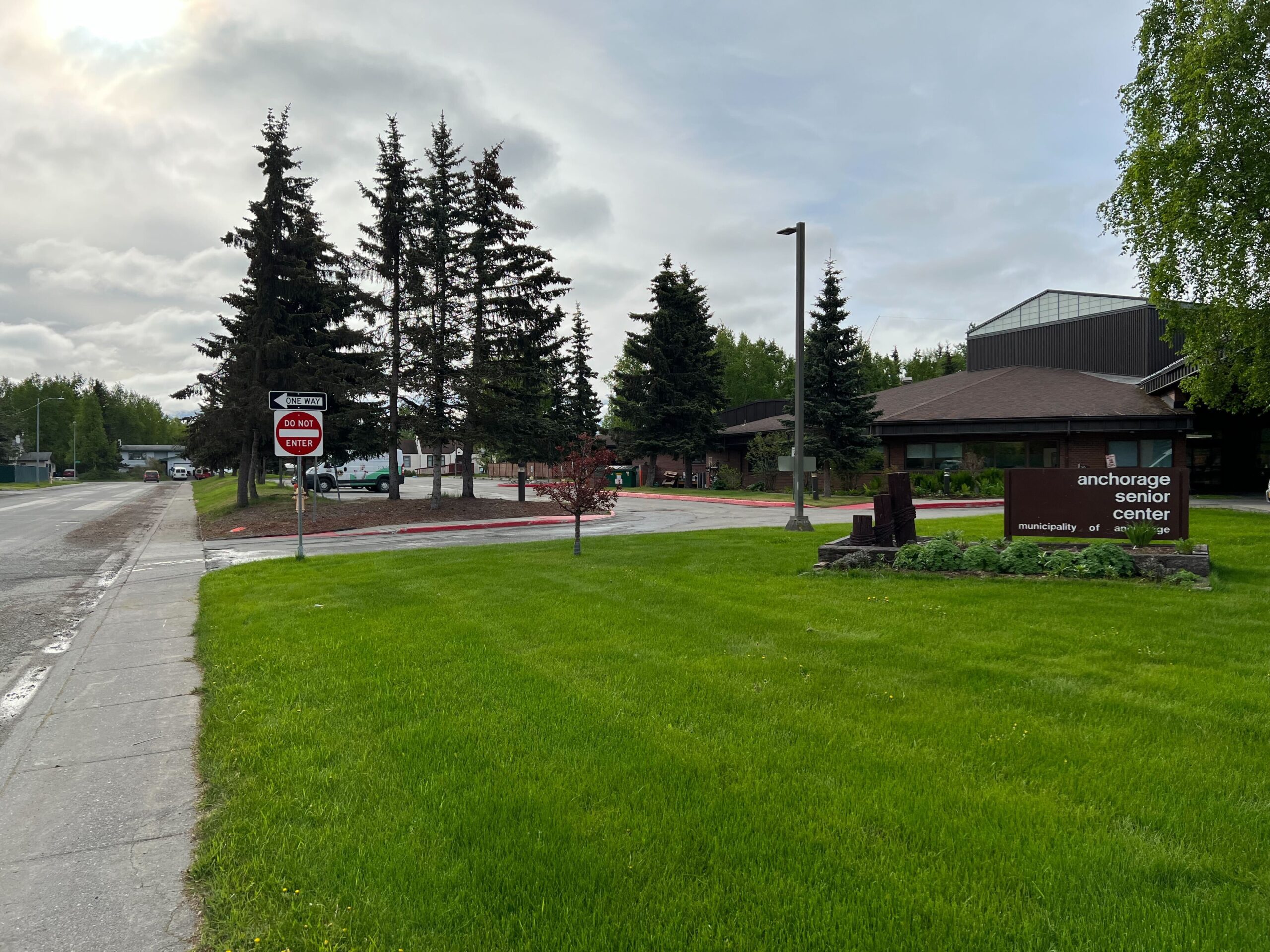
The three Anchorage police officers who shot and killed a man they say drew a gun on them last month will not face criminal charges after body camera footage corroborated their accounts, according to the state.
The state Office of Special Prosecutions released a letter Thursday clearing Sgt. Jesse Frey and Officers Isaac Kimball and Nicholas Flechsing in the June 3 shooting of 21-year-old Tyler May.
The letter comes just days after the state cleared two Anchorage police officers who shot and wounded murder suspect Kaleb Bourdokofsky on June 1. State prosecutors say they are working to speed up reviews of officer-involved shootings, with Anchorage police shooting five people – three of them fatally – since mid-May.
The letter on the June 3 fatal shooting, sent to APD Chief Sean Case by Assistant Attorney General Dan Shorey, also included new details about what happened.
According to the letter, 911 calls to police at about 9:30 p.m reported two men who had fired shots and were walking toward the Anchorage Senior Activity Center in Fairview. One caller said that one of the men had previously “pulled a gun on children in the neighborhood and tried to take the children’s scooter.”
Frey, Kimball and Flechsing all responded to the area within five minutes of the first call, armed with .223-caliber rifles, and were soon joined by K-9 Officer Timothy Dorsey and his dog, Ray. When they encountered a man matching callers’ descriptions of one suspect, they ordered him to sit on the ground and he complied – just as another man, later identified as May, ran into the senior center’s north parking lot.

“Officers observed a pistol in May’s right hand,” Shorey said in the letter. “Officers immediately commanded May to drop the gun and get on the ground. May put the pistol in his front waistband, raised his hands above his shoulders, and turned away from the officers.”
May then ran from the officers, but the K-9 unit was released and bit him in the upper back, knocking him to the ground. As Frey, Kimball and Flechsing approached, they saw May roll onto his back as he struggled with the K-9 and reach into his waistband, Shorey said in the letter.
“May pulled the pistol out and pointed it in the direction of officers,” Shorey said. “At that time Sergeant Frey, Officer Kimball and Officer Flechsing each fired their rifle, striking and killing May.”
According to Shorey, May was shot during two seconds of gunfire from the officers at 9:38 p.m. Flechsing’s rifle obscured his camera’s view during the shooting, but both Frey and Kimball’s cameras recorded the shooting, in Kimball’s case capturing the shots he fired.
“May is heard screaming in distress as K-9 Ray bites him,” Shorey said. “May’s right hand raises up and he has a pistol in his hand. An officer commands May to ‘drop the gun!’ Nearly simultaneously, at 9:38:41 p.m., Officer Kimball shoots May and the pistol drops from May’s right hand.”
Sixteen .223 shell casings were recovered from the site of the shooting. The rifles were each loaded with 30-round magazines, with 21 rounds remaining in Frey’s rifle and 25 each in Kimball’s and Flechsing’s.
Police recovered an unfired pistol from the detained man. They also found May’s Glock .40-caliber pistol in parts near him, including an extended magazine and slide that appeared to have been struck by gunfire. The weapon’s grip, trigger and lower frame were found under May’s right thigh.
“(T)here was a Federal brand .40 (Smith & Wesson) cartridge in the barrel, and 12 additional cartridges in the 22-round .40-caliber Glock magazine,” Shorey said.
Shorey said an autopsy on May discovered alcohol in his blood at a level of .194, just over twice Alaska’s legal limit for driving. Traces of marijuana were also found in his system.
Police spoke with May’s girlfriend, who said she and May had been arguing earlier that day.
“(She) told detectives May was usually calm but he would lose control when he drank and that he had been drinking that day,” Shorey said.
May’s mother, who lived in the area, told police she last saw him about three and a half hours before he was shot. When she heard gunfire and word of a police shooting, she went to the senior center and recognized May’s body at the scene.
A woman who knew both May and the man initially detained told police he had visited her apartment that evening. During the visit, she said he abruptly strangled her for about a minute.
“(She) told detectives that May was talking to her that night about being ready to die and said he loaded and unloaded his gun,” Shorey said.
The detained man told police he visited the woman’s apartment and told May to take a walk with him. But May was still angry, the man said, and fired his gun during the walk.
The detained man said he didn’t see police shoot May because he was facing away at the time, but he said he flinched when he heard the gunfire and saw May’s body when officers led him to a police car.
Frey told detectives that after he arrived at the senior center, he and the other officers were determining whether anyone had entered the building when they saw May and the other man.
Frey said that during the struggle with May, he fired immediately after seeing May draw his pistol.
“I remember seeing the barrel, and like Dorsey and Flechsing are right there so if he gets that clear he’s gonna shoot and kill them,” Frey told detectives. “Like I can’t…I can’t let him do that.”
Both Kimball and Flechsing told detectives that the officers had initially hoped to handcuff May while he was face-down, but were surprised when he rolled onto his back despite having a K-9 on him.
Kimball, a firearms instructor and member of APD’s SWAT team, said that had May fired at the group of officers, “we would’ve taken that round for sure.”
Flechsing said as May drew his pistol, he decided that if May aimed the weapon at him he would open fire.
“And that’s when I drew the line in the sand, when I saw him still raising the gun after being – refusing commands to drop the gun,” Flechsing said. “And that’s when I fired my rifle.”
Shorey said that given the overall circumstances leading up to the shooting, it was “objectively reasonable” for police to be concerned about “an armed subject in a crowded neighborhood who has been firing shots and scaring other residents.” He ultimately decided against charging the officers, noting that state law allows officers to use deadly force against people they believe pose a threat of death or serious injury to themselves or others.
“Collectively, the officers subjectively believed that deadly force was necessary to protect their own lives and the lives of their fellow officers,” Shorey said.
Chris Klint is a web producer and breaking news reporter at Alaska Public Media. Reach him atcklint@alaskapublic.org.Read more about Chrishere.


إرسال تعليق